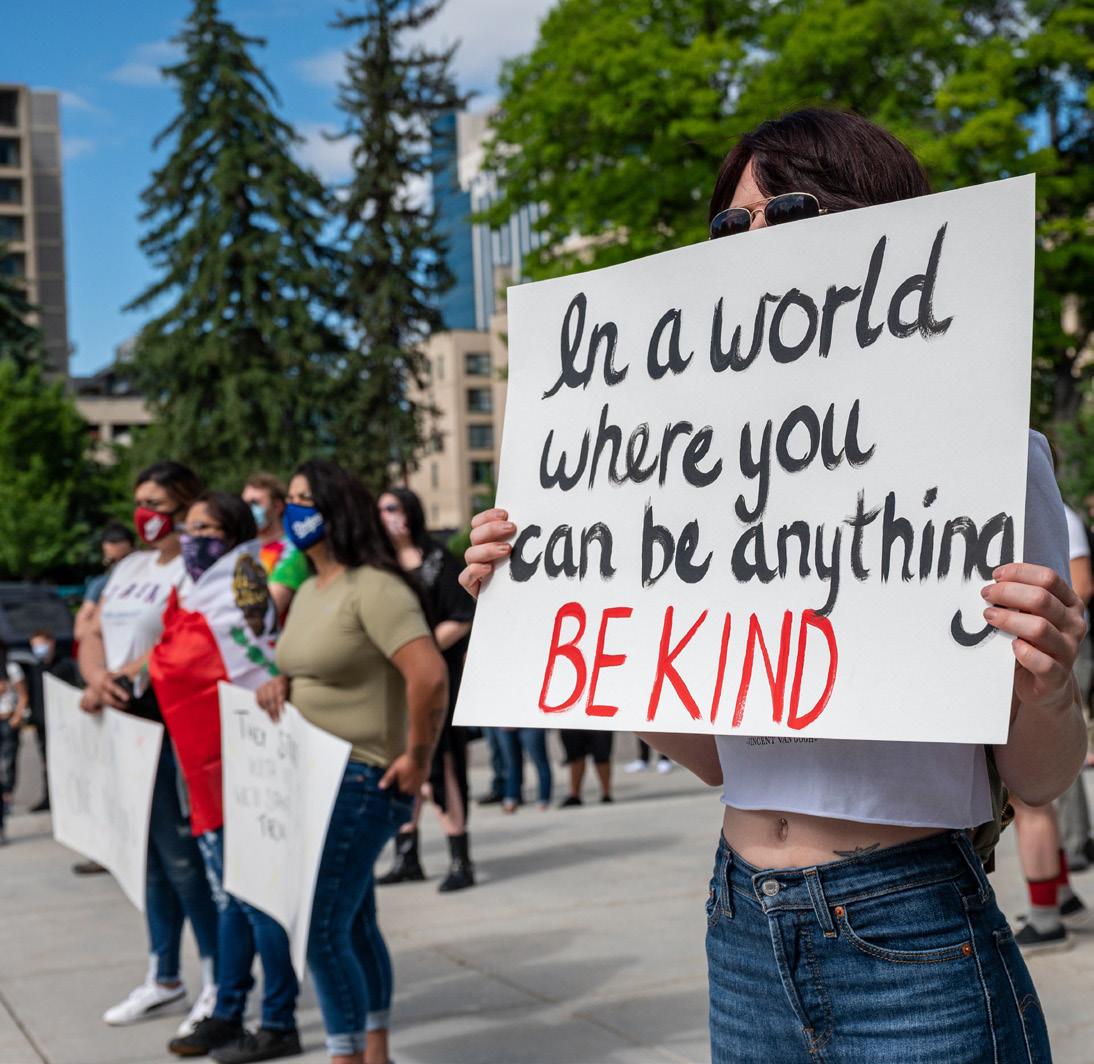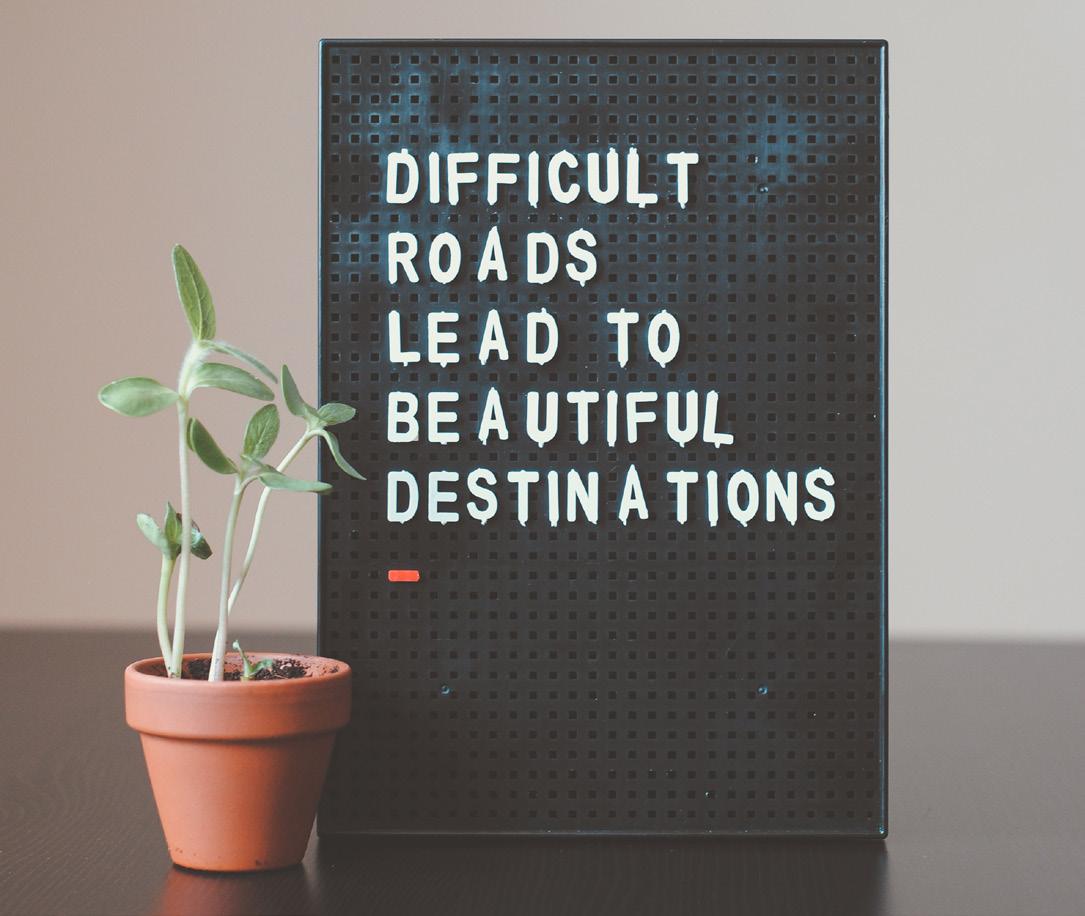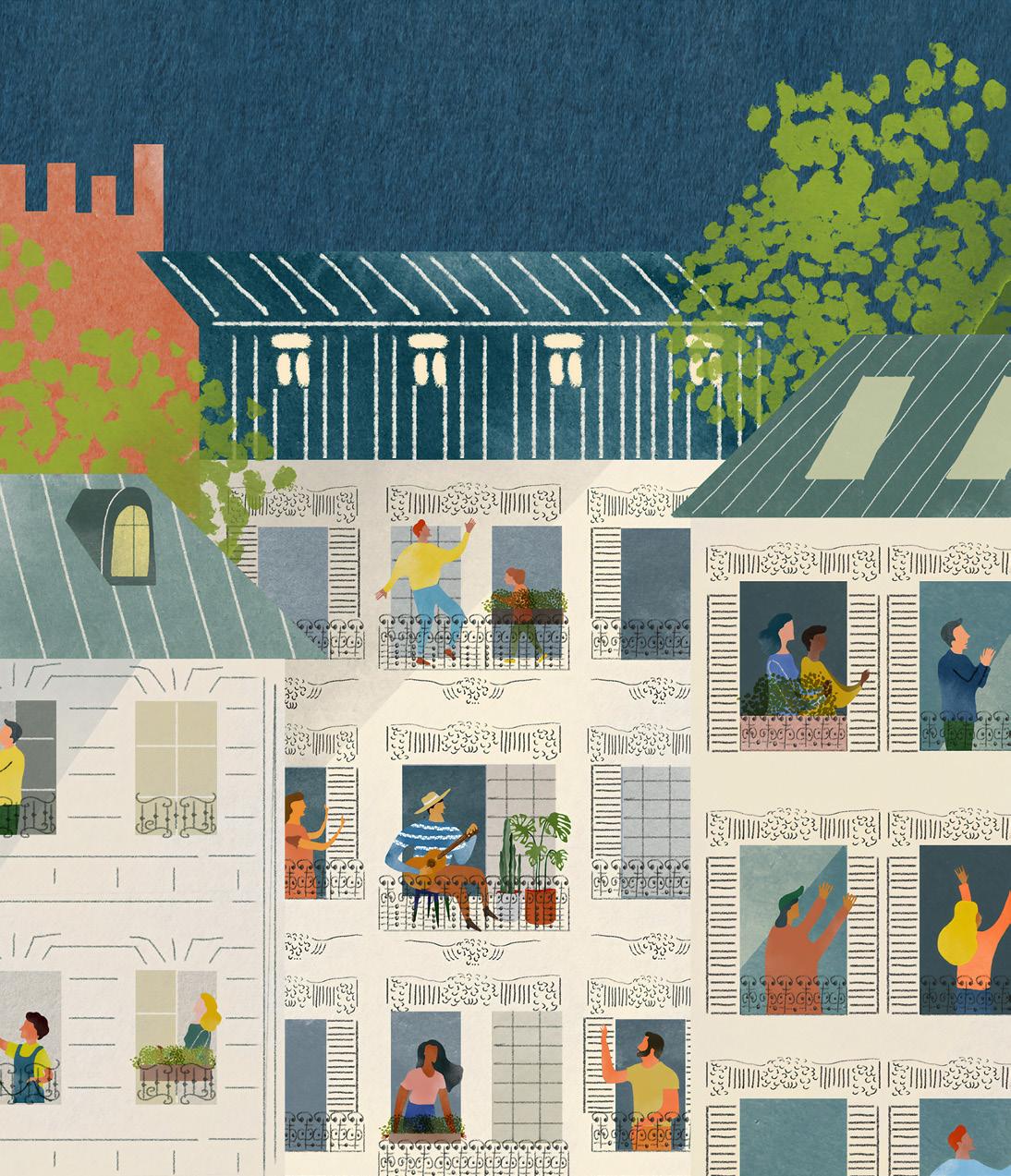
9 minute read
Monachopsis by Rachel Hicks
Monachopsis
(or, How I Stopped Worrying about Being a Poser and Learned to Love My Locale) By Rachel Hicks
Advertisement
Two points for you if you just pegged me as a Gen-Xer by my use of the word poser. Two more points if you know what midtwentieth-century satirical American movie I just referenced in the subtitle.
Now let’s tackle monachopsis since you’re wondering what the heck that is. Actually, it’s not a “real” word. It’s a poser word. It’s not listed in The Merriam-Webster Dictionary, but you will find it in The Dictionary of Obscure Sorrows. Monachopsis (pronounced “mo-na-kopsis”) is a noun, and it is defined as “the subtle but persistent feeling of being out of place, as maladapted to your surroundings as a seal on a beach—lumbering, clumsy, easily distracted, huddled in the company of other misfits, unable to recognize the ambient roar of your intended habitat, in which you’d be fluidly, brilliantly, effortlessly at home.”
Ahh, you’re saying now, I see where she’s going with this…
I honestly don’t remember where I first came across this word, but it was recently. I jotted it down in my notebook where I keep a bunch of my writing ideas. Whoever first came up with it joined the Greek monos (solitary or alone) with opsis (appearance or semblance). As I pondered the word, I asked myself, Are TCKs—especially those of us who have moved a lot—doomed to perpetual monachopsis? In other words, do we ever stop feeling like posers?
That question prompted several others, which we’ll explore together here. The first is this:
How do we know when we’re “invested” enough in a locale (city, town, community) to work on its behalf?
In late 2013 my husband, kids, and I moved to Baltimore, Maryland (US), after seven years in southwestern China. We felt called (vocare—"to call”; root of “vocation”) to live, work, and worship in the city. Baltimore is a majority African American city, and as a white family we are minorities in our neighborhood. Our multi-ethnic church is focused on serving its neighborhood and engaging in urban and justice issues. My husband Jim works for the city government in community development. Even though this is our context, it’s necessarily taken a long time to begin to feel like I have a “right” to come alongside others who have been here much longer and are heavily invested in the city, to serve, work, or advocate.
Moving here has meant we have had to take the posture of learners, as we did when moving internationally. As we try to live consistently within our calling to be good neighbors and bridge builders, it’s been humbling to realize how ignorant we’ve been about something as fundamental as race relations in our “home” or “passport” country. As a TCK I’m used to the oddity of not being local, of feeling like an outsider, of not having a recognized stake in that locale. I’m used to not being as familiar as an insider with a city’s history, issues, and community stakeholders. But while it can be tempting to use that as an excuse not to “get my hands dirty” in local issues, being a good neighbor means that I must put in the time and energy to get to know those around me.
The more I learned about the history of racism in this country and in Baltimore in particular, including how it literally shaped this city (for an eye-opening look at this, watch Dr. Andy DeVos’s presentation, “Understanding Racial Disparities in Baltimore: A Framework for Empathy”), the more I wanted to share with others like me who were ignorant about these realities.

Just before we moved into our new home, Michael Brown, an unarmed black man, was shot by a police officer in Ferguson, Missouri, and people all over the US took to the streets in protest. Every morning as I walked around the lake near our new house, I passed people who were talking about it, their voices filled with pain, anger, and fatigue at yet another incident like this. The pain was palpable. It was everywhere around me.
As the only white family on our block, I longed to show that we were grieving with our neighbors. One morning I decided to make a “Black Lives Matter” sign and put it on the windshield of our car parked on the street in front of the house. It felt like such a small, token gesture, but I felt I had to do something to let our neighbors know that we cared.
Later, as I sat at my dining room table eating lunch, I noticed through the window that our neighbor from across the street, Kevin, paused by his truck to look at our car. He then hobbled over (he’d broken his leg and was using crutches), read the sign, hesitated, and began to walk away. Suddenly, he turned, came back and took the sign, folded it up, got into his truck and drove away.
I was flummoxed and anxious. What was that about? Was he angry? Did it offend him—did he think we were “virtue signaling”? Maybe he didn’t even want us there, especially at this sensitive moment in time. All sorts of thoughts ran through my head. I was worrying that I had read everything wrong and overstepped my bounds. My monachopsis was in full-throttle mode. You’re jumping in on the BLM movement late in the game, aren’t you? You didn’t even grow up in this country! Who do you think you are?
Jim and I talked about it later when he came home. We’d talked with Kevin and his wife Kelly on several occasions and had met their sweet little daughters. They had seemed friendly and happy to have us as neighbors. But maybe Brown’s killing and the hurt and furor it had exposed and ignited were too much and Kevin had wanted to send us a signal that our presence and sympathy were not welcome.

Can we learn to live with the ebb and flow of monachopsis? Can we make our peace with it?
When we hear that accusing voice saying, “You don’t belong here. Stop pretending this community is your community,” what do we do? For many adult TCKs, whether engaged in career work or volunteerism, I believe we probably won’t ever be entirely free of feeling like we don’t belong. We may have good long stretches when we’re active and engaged, working with others, and enjoying the comradery—but then out of nowhere we feel that sense of inner exile. We look around us and think that everyone else is “local” and has more ownership, more of a stake in what we’re doing together. Poser, we hear in our heads (or whatever the boomer, millennial, or Gen Z equivalent is).
When we experience that self-doubt, we might end up “hanging back” and resisting investment in a place, people, or community. Do you ever do this (intentionally or not)? Do you wait for someone to give you permission or license to jump in and work or serve?
When new to a locale, it is both prudent and honoring to your host community to enter humbly and with a learner’s attitude. Following the lead of and learning from local leaders, community members, and those who have been on the job or project far longer than you is wise and necessary for relationship building.
But at some point, you are going to have to decide that this place, this people, is “home enough” for you to live there as an invested member of the community. You’re going to have to ignore the itchy-feet feeling the word “invested” gives you, tell your monachopsis to shut up, and get busy alongside others.
Speaking of itchy feet, my family hit the sevenyear mark of living in Baltimore in November of this year. We spent the first seven years of our married life in Phoenix, Arizona, followed by seven years in southwestern China. But guess what? I’m actually pretty content here right now. The stability has been good for me, good for my kids, good for all of us. My kids tell me they’re grateful we live in Baltimore—they’re grateful to have a close-up experience with issues of race, to experience life as a minority in the United States, and to know our beautiful friends and neighbors who have become in some ways like family.

Being somewhere long enough to build relationships, a bit of a history, and a strong sense of community is pretty amazing. Yes, I still experience monachopsis—I know it will continue to come and go. There are still times I daydream about where else we might live internationally, where else we might be called in the future. Am I “fluidly, brilliantly, effortlessly at home” here? No, but I’m learning—and maybe during this crazy year we’re all learning—that I can be sure I am called to this moment, to what and who may be before me today.
Speaking of calling, I’ll end with a scripture verse that Jim and I feel is the heart of our vocation, no matter where we find ourselves: “Seek the peace and prosperity of the city to which I have carried you into exile.” (Jeremiah 29:7)
*When I asked their permission to use this anecdote, Kevin and Kelly were amused to learn who really put the BLM sign on our car.








